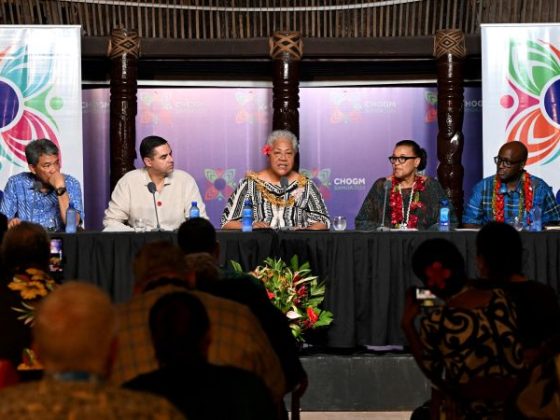 The new Prime Minister of Japan, Fumio Kishida, is facing a major test with a general election just weeks after taking office. The election results can greatly impact the political stability and policymaking in the country.
Kishida, a former foreign minister, took over the largest democracy in Asia on 4th October 2021, following the resignation of Yoshihide Suga, who was criticized for his handling of the Covid-19 pandemic. Kishida has promised to revive the economy through a new form of capitalism that promotes income redistribution and increased social welfare.
However, winning the election may not be an easy task, given the precarious situation in Japan. The country is not only struggling with pandemic recovery, but also facing an ageing population, declining birth rate, a sluggish economy, and geopolitical concerns posed by neighboring China and North Korea.
Moreover, the public’s trust in the current administration is not at its best. According to opinion polls, Mr. Kishida has low support rates, similar to Mr. Suga’s during his last days in office.
Should he manage to win the election, Kishida will gain a stronger mandate to push forward his vision and policies. However, a loss could potentially see his tenure cut short, prompting another leadership change and adding to political instability.
There is also the question of the role of the Liberal Democratic Party (LDP), which has governed Japan for much of the post-WWII period. Kishida’s victory in
The new Prime Minister of Japan, Fumio Kishida, is facing a major test with a general election just weeks after taking office. The election results can greatly impact the political stability and policymaking in the country.
Kishida, a former foreign minister, took over the largest democracy in Asia on 4th October 2021, following the resignation of Yoshihide Suga, who was criticized for his handling of the Covid-19 pandemic. Kishida has promised to revive the economy through a new form of capitalism that promotes income redistribution and increased social welfare.
However, winning the election may not be an easy task, given the precarious situation in Japan. The country is not only struggling with pandemic recovery, but also facing an ageing population, declining birth rate, a sluggish economy, and geopolitical concerns posed by neighboring China and North Korea.
Moreover, the public’s trust in the current administration is not at its best. According to opinion polls, Mr. Kishida has low support rates, similar to Mr. Suga’s during his last days in office.
Should he manage to win the election, Kishida will gain a stronger mandate to push forward his vision and policies. However, a loss could potentially see his tenure cut short, prompting another leadership change and adding to political instability.
There is also the question of the role of the Liberal Democratic Party (LDP), which has governed Japan for much of the post-WWII period. Kishida’s victory in
Japan’s new PM faces major test with an election just weeks after taking office

 The new Prime Minister of Japan, Fumio Kishida, is facing a major test with a general election just weeks after taking office. The election results can greatly impact the political stability and policymaking in the country.
Kishida, a former foreign minister, took over the largest democracy in Asia on 4th October 2021, following the resignation of Yoshihide Suga, who was criticized for his handling of the Covid-19 pandemic. Kishida has promised to revive the economy through a new form of capitalism that promotes income redistribution and increased social welfare.
However, winning the election may not be an easy task, given the precarious situation in Japan. The country is not only struggling with pandemic recovery, but also facing an ageing population, declining birth rate, a sluggish economy, and geopolitical concerns posed by neighboring China and North Korea.
Moreover, the public’s trust in the current administration is not at its best. According to opinion polls, Mr. Kishida has low support rates, similar to Mr. Suga’s during his last days in office.
Should he manage to win the election, Kishida will gain a stronger mandate to push forward his vision and policies. However, a loss could potentially see his tenure cut short, prompting another leadership change and adding to political instability.
There is also the question of the role of the Liberal Democratic Party (LDP), which has governed Japan for much of the post-WWII period. Kishida’s victory in
The new Prime Minister of Japan, Fumio Kishida, is facing a major test with a general election just weeks after taking office. The election results can greatly impact the political stability and policymaking in the country.
Kishida, a former foreign minister, took over the largest democracy in Asia on 4th October 2021, following the resignation of Yoshihide Suga, who was criticized for his handling of the Covid-19 pandemic. Kishida has promised to revive the economy through a new form of capitalism that promotes income redistribution and increased social welfare.
However, winning the election may not be an easy task, given the precarious situation in Japan. The country is not only struggling with pandemic recovery, but also facing an ageing population, declining birth rate, a sluggish economy, and geopolitical concerns posed by neighboring China and North Korea.
Moreover, the public’s trust in the current administration is not at its best. According to opinion polls, Mr. Kishida has low support rates, similar to Mr. Suga’s during his last days in office.
Should he manage to win the election, Kishida will gain a stronger mandate to push forward his vision and policies. However, a loss could potentially see his tenure cut short, prompting another leadership change and adding to political instability.
There is also the question of the role of the Liberal Democratic Party (LDP), which has governed Japan for much of the post-WWII period. Kishida’s victory in

